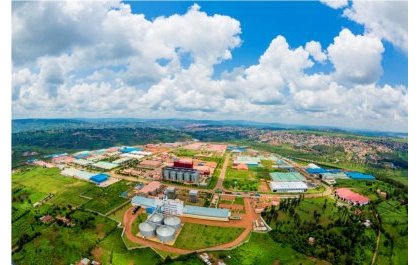Rwanda Moves to Support Industrial Growth with Low-Cost Financing

The Government of Rwanda is planning to set up a special fund that will help industrial investors access low-interest loans aimed at boosting productivity and strengthening the country’s manufacturing sector.
This was revealed by Antoine Marie Kajangwe, the Permanent Secretary in the Ministry of Trade and Industry (MINICOM), during his meeting with Members of Parliament from the Committee on Land, Agriculture, Livestock, and Environment on Thursday, November 13, 2025.
Kajangwe noted that one of the main challenges faced by industrialists is access to affordable financing for starting or expanding factories. “One of the major challenges for manufacturers is accessing capital either to start a factory or to expand existing operations,” he said. “Many of them have complained about the high interest rates in the market, which make it difficult for them to stay competitive.”
He explained that the government is finalizing the establishment of an industrial fund that will offer credit at lower interest rates compared to commercial market rates. “We are working on a fund we believe will provide a lasting solution by offering loans with much lower interest rates so that industries can operate efficiently,” he added. “As outlined in the NST2 (National Strategy for Transformation), the industrial sector is expected to play a key role in increasing GDP and creating jobs.”
Kajangwe said the initiative is still being refined in collaboration with various institutions, emphasizing that it will be operational “very soon.”
He further pointed out that some industries will be prioritized based on their demonstrated potential to increase productivity.
According to Kajangwe, most Rwandan industries operate below their installed capacity due to several constraints, including limited access to raw materials, outdated equipment, and restricted access to financial services.
Earlier, on October 2, 2025, Prime Minister Dr. Nsengiyumva Justin addressed both chambers of Parliament, highlighting the importance of boosting industrial efficiency. He urged factories to maximize their capacity and extend operating hours to improve output. “Our factories operate like office workers from 8 a.m. to 5 p.m. That is not how an industry should run if we expect 100% productivity,” the Prime Minister said. “If a machine works eight hours and is idle for 12, we can’t reach the production targets we aim for.”
He added that limited production is one of the main reasons locally made goods remain expensive, as industries produce in small quantities relative to their investment costs.
On November 11, 2025, Minister of Infrastructure Dr. Jimmy Gasore also told Parliament that a multi-sectoral task force had been established to study how domestic industries can achieve full operational capacity.
The recently updated National Urbanization Policy also emphasizes the development of industrial zones within cities as a key strategy to increase manufacturing output and promote sustainable economic growth.

SUBSCRIBE TO OUR NEWSLETTER












